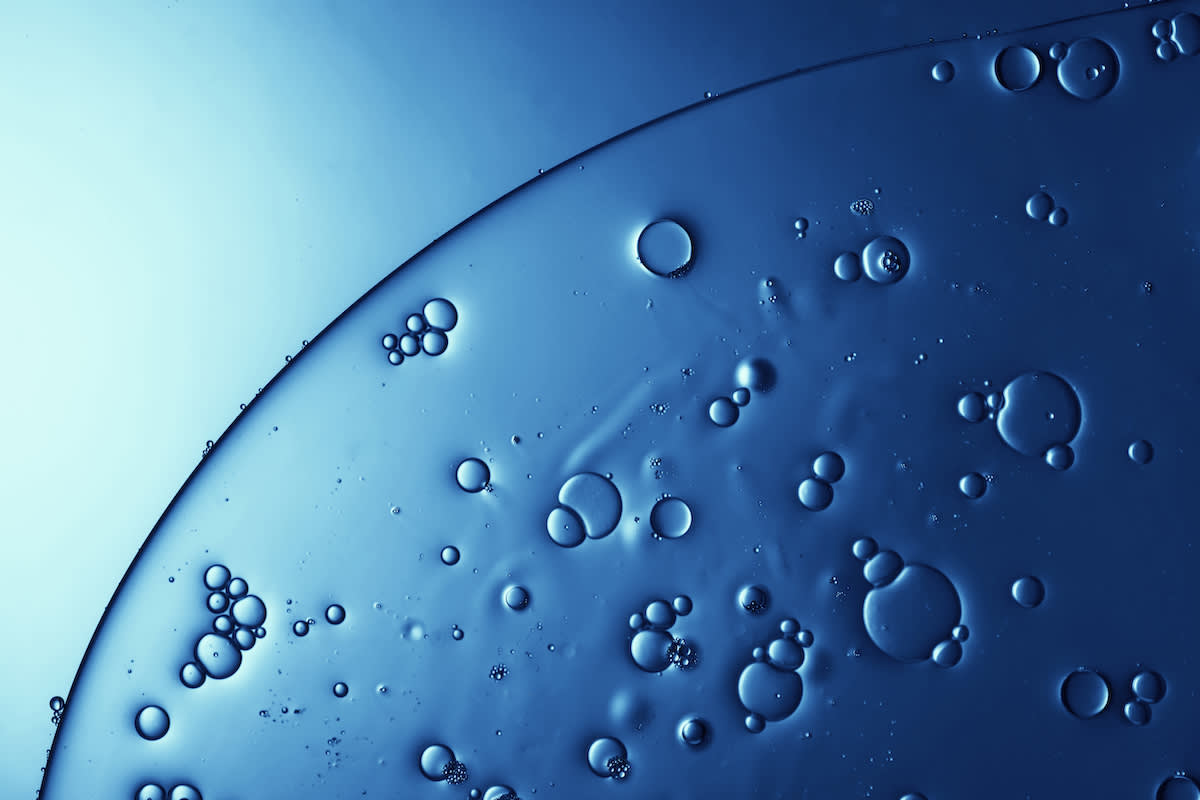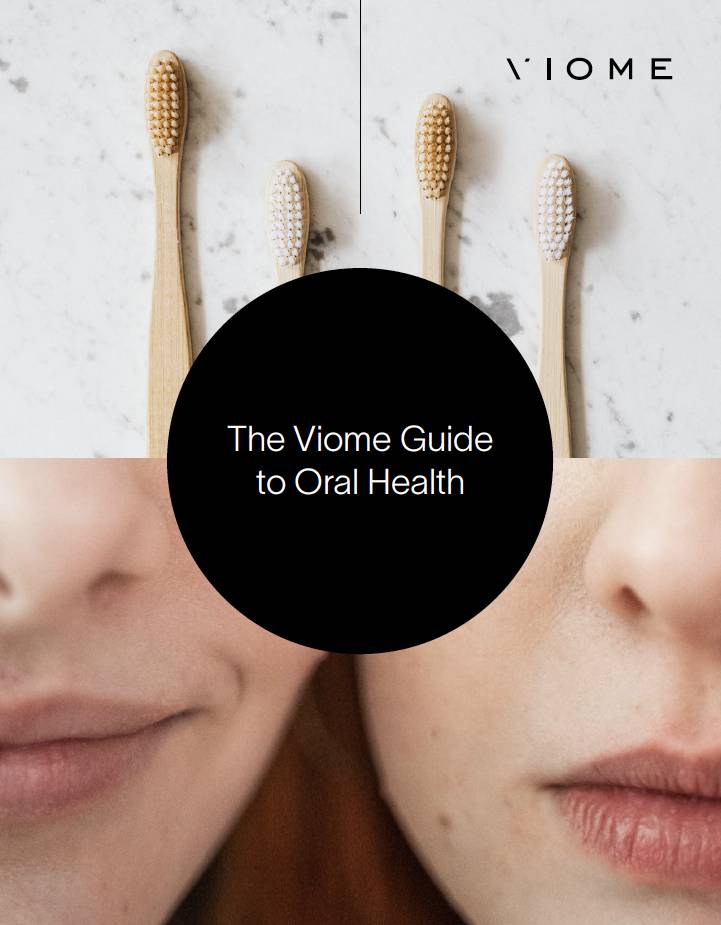
Most people don't give saliva much thought. But did you know that at every moment of every day, your saliva is affecting your health?
Saliva might not seem important. In fact, saliva has gotten a bad rap for more than a century. When usually discussed, spitting and drooling have negative connotations and are usually used as an insult. Spitting is seen as an act of anger and disrespect and a dangerous public health concern. In the 1900s, New York's "Sanitary Squad" arrested people for spitting on subway platforms in an attempt to limit the spread of the flu.1
Around 80 million bacteria may transfer in a 10-second kiss - no wonder we are concerned about our spit.2 Spitting in public spaces remains illegal in places like Arizona and Singapore - a testament to the power of saliva.3,4
Saliva plays a vital role in oral health, digestion, and overall well-being. It constantly impacts your health. Saliva also provides clues about the rest of the body that should not be dismissed. Read on to learn how saliva does your mouth and your body good.
What is the Importance of Saliva?
From an oral health perspective, salvia is valuable and a great source of insight and plays a major role in oral health and overall health and immunity. It plays a vital role in maintaining physical well-being, and it's a key player in the process of eating and digestion. Without enough saliva — as anyone who's suffered dry mouth can tell you — a multitude of problems can occur.
What is saliva, and how is it made?
Saliva is 98 percent water. It contains small amounts of important substances, including mucus, proteins, minerals, electrolytes, antibacterial compounds, and enzymes. Saliva moistens the mouth for comfort, lubricates as you chew and swallow, and neutralizes harmful acids. It also kills germs, prevents bad breath, defends against tooth decay and gum disease, protects enamel, and speeds up wound healing.5
Saliva originates in the three pairs of major salivary glands and in hundreds of minor glands surrounding the oral cavity. The major salivary glands responsible for most saliva production include the parotid (inside cheeks), sublingual (under tongue), and submandibular (near jawbone).
Tiny tubes called salivary ducts carry saliva from the glands into your mouth. Small amounts of saliva enter the mouth constantly to keep the mouth moist. The salivary glands really kick into action when you eat or even just think about or smell food. Then, your glands make lots of saliva, and you can notice much more of it in your mouth. An average person produces 1-2 pints of saliva every day.
What Triggers Saliva Production?
Salivation is mainly controlled by the autonomic nervous system (ANS), which regulates automatic bodily functions needed for survival. Two ANS divisions impact saliva:
The sympathetic nervous system activates responses to stress and danger, producing thicker, more viscous saliva. This explains dry mouth during anxiety.
The parasympathetic nervous system controls "rest and digest" processes, stimulating watery saliva for easier eating.
Parasympathetic activation has a greater, longer-lasting effect on salivation than sympathetic stimulation.
Everyday factors also influence saliva levels:
More saliva is produced when eating sour foods to dilute their acidic effects on teeth and digestion.
Thinking about delicious foods can trigger salivation.
Salivary glands are more active during the day, decreasing at night due to circadian rhythms.
How does saliva help your mouth?
When considering how to keep teeth and gums healthy long-term, most people think about limiting sugar, finding the right toothpaste, and addressing other common oral care issues. However, one under-appreciated aspect that greatly impacts oral health is saliva.
According to the National Institute for Dental and Craniofacial Research, over 90% of adults have tooth decay and 46% have gum disease. At least 40% of children have cavities, and 65% have gum disease - that's a lot of oral health issues. Saliva can help prevent common oral health issues in several ways.6
Digestion begins in the mouth
The digestive process starts in the mouth with saliva secretion and taste sensation. Saliva enzymes initiate starch and fat breakdown while taste buds identify flavors. Saliva contains enzymes to digest starches and fats, initiating digestion. Amylase breaks down starches into sugars for absorption. Lingual lipase breaks down fats.7
As saliva breaks down food, it also provides the needed moisture for the taste buds on the tongue and mouth roof to detect tastes. Gustatory cells in the buds send taste signals to the brain, enabling the perception of sweet, sour, salty, bitter, and savory flavors. Nerves throughout the nose, mouth, eyes, and throat sense other qualities like spicy heat.7
Saliva also moistens food for easier chewing and swallowing - moistening food into a bolus that can smoothly travel down the throat and esophagus during swallowing. Without sufficient saliva (xerostomia), swallowing would be a challenge.7
Saliva Delivers Important Minerals
Like a moisturizer, saliva washes over teeth, mouth, and gums, depositing nutrients and minerals that strengthen oral tissue. Adequate nutrition and hydration and a healthy oral microbiome are necessary to produce quality saliva that mineralizes teeth. Saliva contains calcium, fluoride, and phosphate ions that work to re-mineralize and strengthen tooth enamel. Increased saliva production helps prevent tooth decay by diluting and buffering plaque acid, providing minerals to remineralize enamel.8
Saliva Helps Maintain Mouth pH
The mouth is an intricate environment. Salivary pH is crucial for maintaining oral health. Saliva produced in the mouth's salivary glands helps create conditions unfavorable for bacterial growth. Though often overlooked, salivary pH plays a vital role in inhibiting bacteria and protecting teeth and gums. While saliva works to maintain an ideal pH balance in the mouth, some external factors can disrupt this; things like diet, medications, and habits can undermine saliva's pH-regulating function. To enable saliva's buffering effects, good daily habits are key.8
Saliva Protects From Harmful Bacteria
Saliva contains antimicrobial components that break down and inhibit bacterial cells, helping to prevent bacterial overgrowth. Bacteria lingering in the mouth cause bad breath, so saliva's antibacterial actions also help prevent unpleasant odors. Saliva, when healthy, contains compounds like lactoferrin that inhibit harmful oral bacteria. It also has enzymes like lysozyme that break down bacterial cell walls, reducing gum disease and cavities.8
Saliva Helps Deter Plaque from Sticking
Saliva helps form protective pellicles over mouth tissues. These pellicles, a protein-based layer that covers all orally exposed surfaces of the teeth, help prevent plaque from sticking to teeth. Along with brushing and flossing, saliva keeps teeth free of plaque and bacteria.8
Saliva Helps Care for Oral Tissues
Saliva coats and lubricates the delicate mucous membranes and soft tissues of the mouth. It keeps these tissues hydrated and helps maintain a barrier on the mucous membrane. Its lubricating and hydrating properties help prevent toxins, smoke, and irritants from contacting and aggravating the sensitive oral tissues.8
Saliva's Preventative Powers
Beyond keeping gums and mouth healthy and aiding digestion, saliva can signal other health issues. Saliva is used in wellness and medical testing to understand and detect various health conditions. saliva contains biomarkers that allow the identification of numerous diseases and abnormalities. The proactive preventative capacity of saliva testing continues to be uncovered. To date, researchers agree that saliva provides a minimally invasive means of assessing overall health.9
Good Saliva is Vital for Health
Having ample high-quality saliva protects teeth from decay and gums from disease. Proteins and growth factors in saliva also help regenerate tissue and speed healing in the mouth. The quality of saliva depends on nutrition, hydration, medications, and breathing. Eating with proper nutrients that support healthy oral microbial activity is important not only to the mouth but also to the whole body.10
Beyond keeping gums and mouth healthy and aiding digestion, saliva can signal other health issues.
Is it possible to not have enough saliva?
Some people don't make enough saliva, called dry mouth or xerostomia. This causes swollen, uncomfortable mouth tissues prone to infection. Certain illnesses like Sjögren's syndrome and diabetes reduce saliva. Cancer treatments and many medications like allergies, blood pressure, and depression drugs also cause dry mouth.7
Insufficient saliva increases the risks of gum disease, tooth decay, and mouth infections from bacteria, yeasts, and fungi. It also impairs swallowing and digestion.
If you have dry mouth, drink plenty of fluids, and consult your health care or dental provider about how to address it. A combination of nutritional changes and revised oral hygiene can help.
Saliva's Extended Health Benefits
Saliva maintains a healthy mouth, enables proper digestion, and provides other benefits. Your oral health is a window to your overall health and is more important than you might realize. Saliva's influence on oral health, nutrient absorption, and total body function is too significant to ignore. Oral health provides essential clues about total-body wellness. Mouth problems can also affect the rest of the body. Understanding this oral-systemic connection is critical to protecting your health.10
Like the body, the mouth contains mostly harmless bacteria. However, without proper targeted nutrition or hygiene, bacteria can proliferate and cause oral problems like cavities and gum disease. Certain medications reduce saliva flow, which normally flushes away food and neutralizes damaging mouth acids:11
Without proper oral care practices of brushing and flossing, harmful bacteria can build up and wreak havoc on more than just your mouth. Below are some of the health conditions that may be promoted by an excess of harmful oral bacteria and the systemic inflammation and infections they can trigger:11
Cardiovascular disease - including clogged arteries and stroke
Endocarditis - an infection of the inner lining of the heart valves and chambers
Pneumonia and other respiratory diseases are triggered when oral bacteria reach the lungs
Premature birth and low birth weight among pregnant women
On the other hand, there are certain pre-existing health conditions that may also make it more challenging to maintain optimal oral health. For example, HIV/AIDS, diabetes, osteoporosis, eating disorders, rheumatoid arthritis, Alzheimer's disease, and immune disorders may present unique challenges to the oral microbiome, making good oral hygiene even more important.
If you have one of these conditions or are concerned about oral health, it's always best to speak with your physician and dentist about preventive care.
To protect oral-systemic health:
Brush and floss thoroughly daily
Maintain a healthy oral microbiome
Remove debris after eating by rinsing with water, chewing gum, or eating a xylitol lozenge
Get regular dental cleanings and check-ups
Avoid tobacco and alcohol and other negative habits such as biting nails
Eat healthy, low-sugar foods
Replace toothbrushes regularly
Prompt attention to oral problems is essential in the protection of overall well-being. The mouth and body have a two-way relationship. Maintaining good oral hygiene and fixing issues early is vital for systemic health.
When you care for your mouth, you care for the health of your whole body.
References:
Machemer, T. (2020, Feb 10). A Smithsonian Magazine Special Report, Smithsonian Magazine. Accessed November 2023, Available, smithsonianmag.com
Kort R, Caspers M, van de Graaf A, van Egmond W, Keijser B, Roeselers G. (2014). Microbiome. 2014;2(1):41
US Department of State Travel Advisory, Republic of Singapore. Reviewed: November 2023. Available, travel.state.gov/content/travel
Arizona Legal Code, AZ Rev Stat § 36-601 (2022). Reviewed: November 2023. Available, law.justia.com
Dodds, M., Roland, S., Edgar, M. et al.. (2015) BDJ Team 2, 15123 .
“2000 Surgeon General’s Report on Oral Health in America.” NIDCR.NIH.gov. Reviewed March 2021. Available from: nidcr.nih.gov/research.
Health Information, How It Works. (reviewed 2017 Dec). National Institute of Diabetes and Digestive and Kidney Diseases. Accessed November 2023. Available, niddk.nih.gov
Krishnan K, Chen T, Paster BJ. (2017). Oral Diseases. PubMed.
Oral Health in America: Advances and Challenges. (2021). Bethesda (MD): National Institute of Dental and Craniofacial Research (US). National Library of Medicine.
Verma D, Garg PK, Dubey AK.(2018). Arch Microbiol. 2018 May;200(4):525-540. doi: 10.1007/s00203-018-1505-3. Epub 2018 Mar 23. PMID: 29572583.
Periodontal Education, For Patients [on gums] (n.d.). American Academy of Periodontology. Available from: perio.org.



